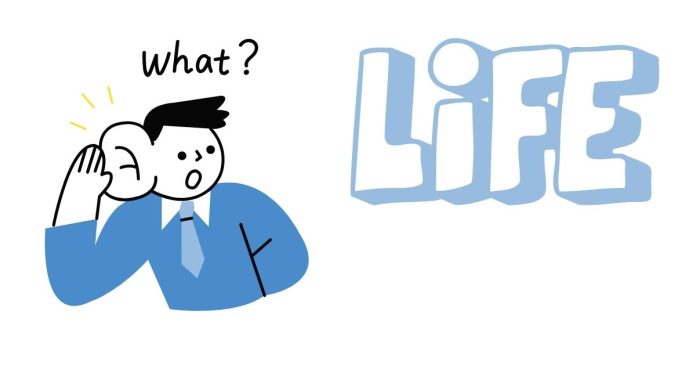The question “What is the meaning of life?” is one of the most profound and timeless inquiries humans have asked themselves. For centuries, philosophers, theologians, scientists, and countless individuals have pondered its significance. Is life driven by a higher purpose, or is it simply an accident of existence? Does meaning come from external sources or from within?
While there may never be a single, universally accepted answer, exploring this question can offer personal insights and deeper reflections. So, let’s dive into some of the different perspectives that have shaped our understanding of life’s meaning.
1. Philosophical Perspectives
Philosophers have long debated the meaning of life, with various schools of thought offering diverse explanations. One of the most famous proponents of the question was Socrates, who believed that “an unexamined life is not worth living.” In essence, he argued that life gains meaning through introspection, self-awareness, and the pursuit of wisdom.
Later philosophers, such as Existentialists like Jean-Paul Sartre and Albert Camus, took a more skeptical stance. Sartre famously declared that life has no inherent meaning and that it is up to each individual to create their own purpose. This view, though bleak to some, provides freedom: the idea that meaning isn’t preordained but is something we actively shape through our choices and actions.
2. Religious Perspectives
Across many religious traditions, the meaning of life is often tied to the existence of a higher power or divine plan. In Christianity, life is seen as a journey of following God’s will, with the ultimate purpose being to achieve eternal life with God. Buddhism, on the other hand, emphasizes the cessation of suffering through enlightenment, seeing life’s purpose as the pursuit of wisdom, ethical living, and meditation.
In Hinduism, life’s purpose is closely tied to the concept of dharma (duty) and the eventual goal of achieving moksha (liberation from the cycle of rebirth). Islam teaches that the purpose of life is to worship Allah and live a righteous life according to the Qur’an and Hadith.
For many, these religious perspectives provide a sense of meaning and direction, offering answers to life’s mysteries and guiding individuals toward a higher purpose.
3. Scientific and Secular Perspectives
In more recent times, scientific and secular approaches have gained traction in addressing life’s meaning. For some, the meaning of life can be found in the natural world, understanding the intricacies of the universe, or advancing human knowledge. According to evolutionary biology, life is driven by the fundamental goal of survival and reproduction. In this view, meaning might come from our role in the broader ecological system or the advancement of the human species.
However, many secular thinkers argue that meaning isn’t inherent to life but is something that must be personally constructed. Psychologist Viktor Frankl, in his book Man’s Search for Meaning, suggested that finding meaning is essential to overcoming suffering. Frankl, who survived the Holocaust, found that people could endure immense hardships by attaching a sense of purpose to their experiences, whether through work, relationships, or a higher cause.
4. The Role of Relationships and Connection
For many people, life’s meaning is rooted in the relationships they form with others. Whether it’s family, friends, or even the wider community, love and connection often provide a sense of purpose. In a world that can feel fragmented, building deep, meaningful relationships offers a tangible way to create and experience meaning in life.
5. Personal Fulfillment and Growth
In today’s fast-paced world, many people turn to personal growth as a path to meaning. For some, this means pursuing passions, achieving personal goals, and continuously evolving. Whether it’s through creative expression, physical health, or intellectual achievement, striving for self-improvement can lend a sense of purpose.
6. The Power of Perspective
Ultimately, the meaning of life might depend on how we view it. The famous philosopher Albert Einstein once said, “Life is like riding a bicycle. To keep your balance, you must keep moving.” This idea reflects a broader understanding that life’s meaning may not be something fixed or static but something fluid, ever-evolving, and deeply personal.
Many believe that it’s not necessarily the destination that gives life meaning but the journey itself—how we experience life, the challenges we overcome, and the moments of joy we embrace.
7. The Meaning Is Yours to Define
The question of life’s meaning is one that each person must answer for themselves. Whether through philosophy, religion, science, relationships, or personal growth, meaning is something we can all explore in our own unique ways. What is clear is that life is an extraordinary gift—one that offers us endless opportunities to find purpose and create meaning.
In the end, perhaps the greatest insight is this: Life’s meaning is not something to be found outside of us. It’s something we can cultivate from within, through our choices, actions, and the connections we make. And that, in itself, can be the most beautiful and empowering realization of all.
What do you think is the meaning of life? Does it come from a higher power, personal achievements, or something else?


